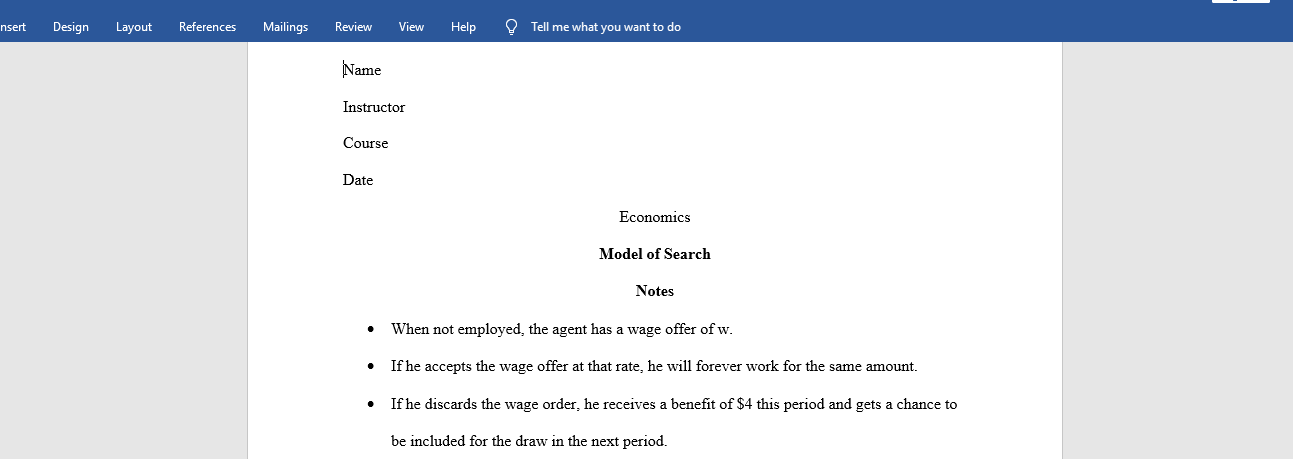A simple model of search.
A simple model of search. Consider an agent who lives two periods. He is unemployed at the beginning of the first period and has a wage offer of w. If he accepts the wage offer w, he will work forever at that wage. If he rejects the offer, he receives an unemployment benefit of 4 dollars this period and he gets to draw a new offer next period. There are only two possible offers with equal probability next period : one wage offer of 8 dollars, and another offer of 24 dollars. The worker’s objective is to maximize the sum of expected discounted earnings. The discount factor β is 0.5.
(a) How much would the agent value today a dollar tomorrow? (Hint: use the concept of discount factor).
(b) What is the expected value of the potential offers?
(c) What is the value for the worker if he accepts the current offer w?
(d) What is the value for the worker if he rejects the current w?
(e) What is his reservation wage?
(f) Suppose he gets an offer of 16 dollars, would he accept or reject the offer?
(g) Suppose he gets an offer of 6 dollars, would he accept or reject the offer?
(h) Suppose that the government increases the unemployment benefit to 6 dollars. What would happen to this agent’s reservation wage? Prove your claim.
Answer preview for A simple model of search.
Access the full answer containing 667 words by clicking the below purchase button

